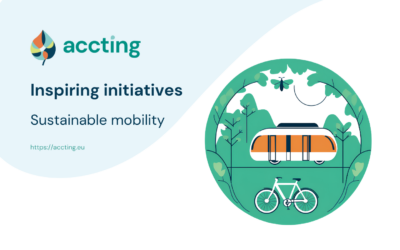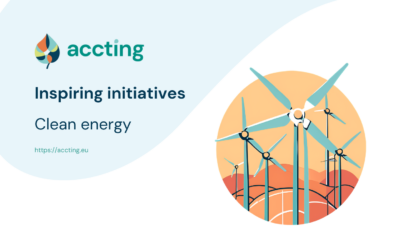
Photo by Matthew Henry
One of the most serious economic and social events of 2022 has been the dramatic increase in energy costs. While a year ago most entrepreneurs considered the cost of energy as marginal, it is now a substantial problem for all companies – even those that are not energy intensive. The narratives collected within ACCTING show that some entrepreneurs are now bearing up to a increase in costs. Many companies are closing down or drastically downsizing their production as a result. It is the smallest enterprises that are hit hardest by the multiple crises of the last few years. Those led by vulnerable individuals (who typically lack capital and resources) are suffering even more. Small and micro-entrepreneurs risk becoming newly impoverished, followed by their business partners and employees.
The adoption of energy-efficiency measures (EEMs) in micro/smaller SMEs is therefore not only important to help mitigate the crucial challenge of climate change, but also to enable the survival of the European business fabric and economy.
How is this linked to making micro- and small-scale enterprises more energy efficient? First of all, this is paradoxically the best time to address an issue that until recently was not considered crucial by all. However, to actually reap some benefits from this situation, several conditions must be fulfilled. We can mention some of these.
- Adopting a “multi-actor” approach. Not only entrepreneurs but also other relevant stakeholders should be involved, such as energy auditors, policymakers, officials from financial institutions, and industrial association representatives. These actors can all contribute to the creation of an “enabling environment” aimed at the design and implementation of EEMs.
- Recognising the heterogeneity of micro and small enterprises (e.g., by size, industrial sector, production type, ownership of premises, use of technology/energy) and of entrepreneurs (e.g., by demographic and/or social conditions, availability of resources, capacities), to then focus on the most vulnerable, that need most urgent assistance. Moreover, assistance should be tailored, as far as possible, to the conditions of each enterprise.
- Facilitating the set-up of networks to which individual enterprises can adhere to for the implementation of EEMs – supported and promoted by innovative environmentalist companies.
- Recognising that while the adoption of EEMs depends on practical matters, like the availability of financial resources, the culture of the actors and their inclination to change is also key.
The ACCTING research focuses on what exactly the conditions are for small and micro-entrepreneurs (particularly the most disadvantaged ones) to adopt pro-environmental behaviours. This, in order to identify solutions to support them in their contribution to the implementation of the European Green Deal.
About the author

Gabriele Quinti, socio-economist and statistical methodologist at Knowledge & Innovation, has carried out studies, institutional capacity-building and evaluation activities worldwide on the topic of climate change (e.g., energy transition, natural hazards management), as well as research and policy analyses in the field of the eradication of poverty and social exclusion.


